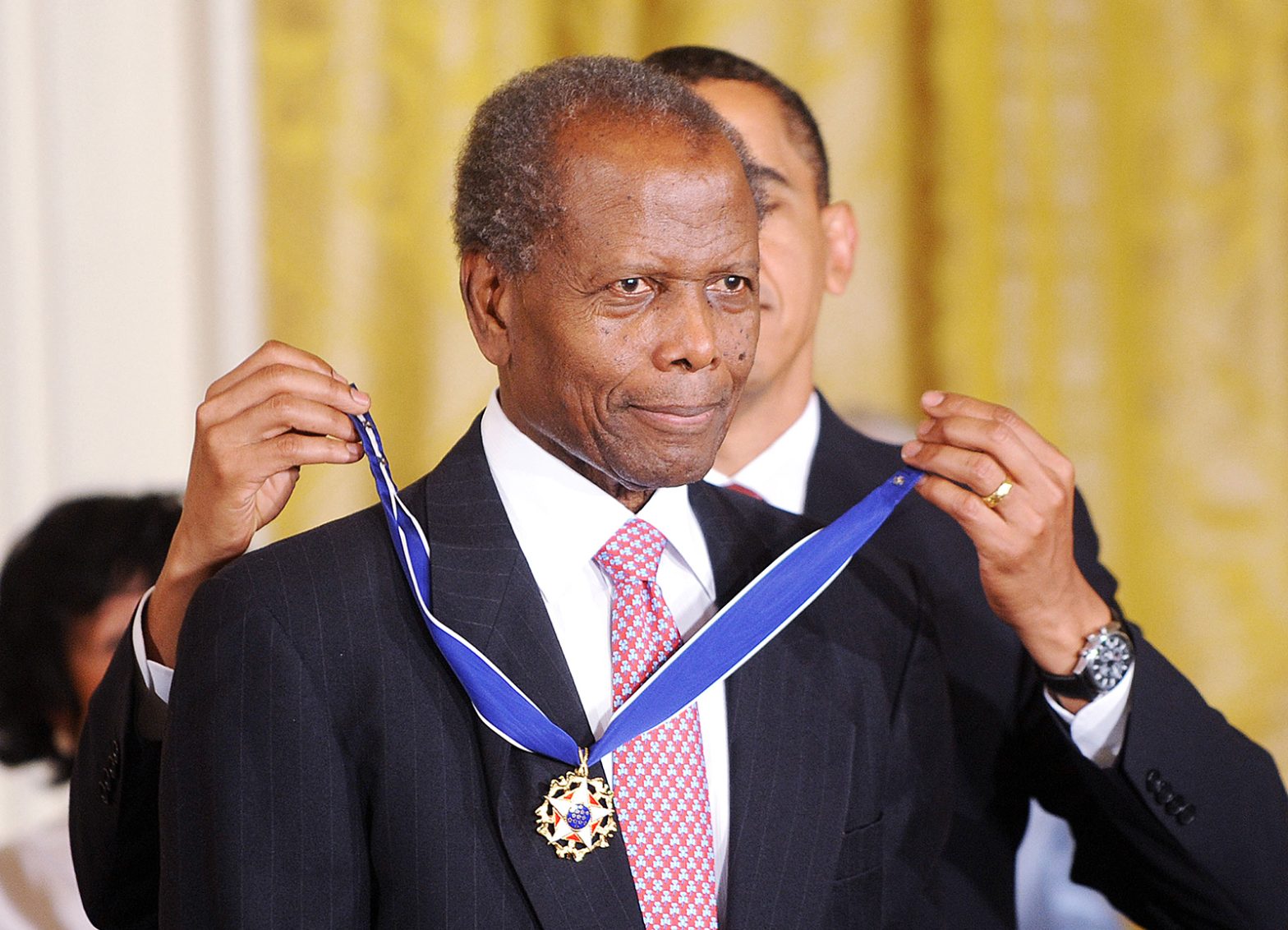He Was the Only One We Had
COMMENTARY

These days, we have Denzel Washington.
We have Viola Davis, Kevin Hart and Jamie Foxx. We have Octavia Spencer, Regina King and Samuel L. Jackson. We have Idris Elba, Lupita Nyong’o, Taraji P. Henson, Michael B. Jordan, Mahershala Ali, Tiffany Haddish and Will Smith. We have, in other words, a bounty of bona fide, mainstream Black movie stars.
But once upon a time, we — African Americans — had only one. His name was Sidney Poitier, and he died last week at the age of 94.
Praises have been raining upon his name ever since, and deservedly so. As an actor, Poitier was known for an economy of expression and movement that could be shattered at any moment by a sudden volcanic intensity. As a social activist, he was brave, supporting the Civil Rights Movement and using his art to illuminate and explore provocative racial themes. And he was a path breaker: first African American to be voted the nation’s top box-office attraction, first Black man to win the Academy Award for Best Actor, which he took home for 1963’s “Lilies of the Field.”
But to fully appreciate what Sidney Poitier meant — to us, at least — you have to understand what it was like back when he was the only one. You have to know why Jet magazine felt it necessary to run a page listing the “Negro” performers who would be on television that week. You have to remember how word that the Temptations or Supremes were going to be on “The Ed Sullivan Show” was enough to make you alert all your friends. You have to understand why Martin Luther King said, “You cannot,” when Nichelle Nichols told him she was leaving her role as Uhura on “Star Trek.”
In other words, you have to have some sense of how it was to be Black in mainstream American culture. Which is to say, largely invisible.
From the porters toting Jimmy Stewart’s bags in “Mr. Smith Goes to Washington” to the maid Mae West commands to “Peel me a grape” in “I’m No Angel,” Black film characters were almost always servile and incidental, orbiting the main action like satellites until it was time to serve coffee or provide comic relief.
In a society that draws so much of its sense of the world and of itself from what it sees onscreen, to be unseen there — or to be seen only in demeaning caricature — is, in a very real sense, not to exist. Culturally speaking, it is a kind of death.
In his years of greatest impact — the late ’50s through the 1960s — Poitier required the movie-going world to see Black people. In those years, the Miami-born Bahamian actor was a doctor, a teacher and a soldier, a cop, a convict and a warmhearted handyman. In other words, he embodied blackness in all its shades of humanity and did so with an unyielding insistence upon his own — and therefore, upon our — dignity and worth.
As they say these days, he represented.
It is not an easy thing to represent. Indeed, it is an unfair – albeit often necessary – burden. To represent a people – to be their avatar in unwelcoming places – is to surrender some of your own prerogatives as an individual, your ability to act according to your own tastes and moods without need of calculating whether that will adversely impact the millions of people whose hopes are embodied in you.
Yet Sidney Poitier did exactly that. Indeed, he bore upon himself the needs and aspirations of an entire people with singular grace and class. For so many years, he was the only one we had.
As it turned out, he was also the only one we would need.
(Leonard Pitts Jr. is a columnist for the Miami Herald, 3511 NW 91st Ave., Miami, Fla., 33172. Readers may contact him via e-mail at [email protected].)
©2022 Miami Herald. Distributed by Tribune Content Agency, LLC.






















